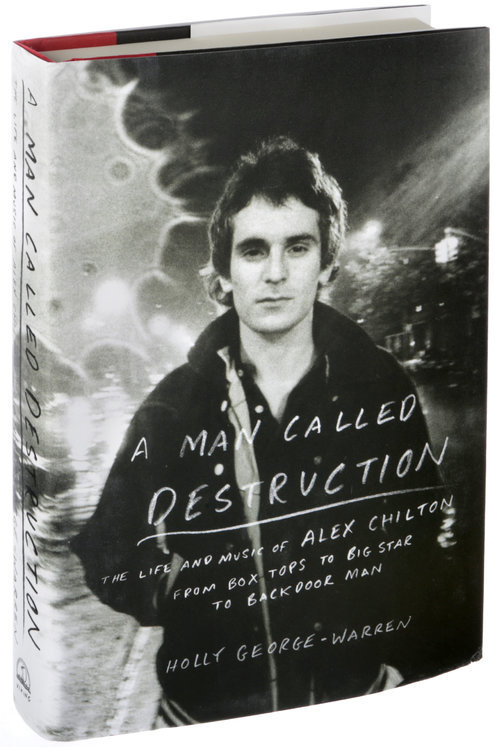
There’s a great overview of recent music books by Howard Hampton at the New York Times today.
He covers books about the Allman Brothers, Alex Chilton, Kiss, Bob Dylan and Earth, Wind & Fire, plus rock journalist Lisa Robinson’s memoir.
All rock biographies/memoirs agree on one point. As Gregg Allman tells it in “One Way Out,” an exhaustive oral history of the Allman Brothers Band by Alan Paul, escaping the workaday lot of “a shock-absorber washer-jammer in Detroit . . . is why I became a musician in the first place.” Or as Joey Ramone sang: “It’s not my place in the 9-to-5 world.”
Whatever form the music might take, it promised a palatable alternative to the routine assembly-line life. Learn how to play an instrument, be able to clutch a mic and project some personality or attitude, and you too might ascend from the pits of menial-labor, desk-job drudgery, or the “Do you want fries with that?” service industry. Not only were shimmering nonunion perks like sex, drugs and fame on the table, but you could sleep until the afternoon, not be penalized for lapses in hygiene or deportment and, with luck, get paid to be utterly irresponsible. What wasn’t to love?
You didn’t even have to be a musician to tap into that life. In 1969, you could be a young substitute teacher in Harlem who started working after school in the office of a syndicated music writer/D.J./would-be record producer named Richard Robinson, and in no time find yourself skating down a yellow brick road of free record albums, concert tickets and record company buffets straight into the spanking new field of rock journalism (while marrying the boss in the process, a union that would also stick). As Lisa Robinson says in her winning THERE GOES GRAVITY: A Life in Rock and Roll (Riverhead, $27.95), she wasn’t like the “boys who had ambitions to become the next Norman Mailer”: She took over her new husband’s column and was off to the races.
A dedicated Manhattan girl, she adopted a very laissez-faire, New Orleans attitude to the rock circus — let the good times roll over you and leave the existential-metaphysical-political implications to others. Robinson wasn’t a partyer, though. She came for the music and the warped conviviality of the milieu (a professed “drug prude,” she passed on the cocaine hors d’oeuvres). Observing Mick Jagger or Robert Plant in their offstage habitats was almost as entertaining as seeing Keith Richards or Television’s Tom Verlaine play sublime guitar licks.
By the ‘70s, Robinson was writing a cheeky gossip/fashion column she called “Eleganza” for Creem magazine. This led to her being hired as the press liaison for the Rolling Stones’ 1975 Tour of the Americas…
Read the rest of this review here at the New York Times.
–- A Days of the Crazy-Wild blog post: sounds, visuals and/or news –-